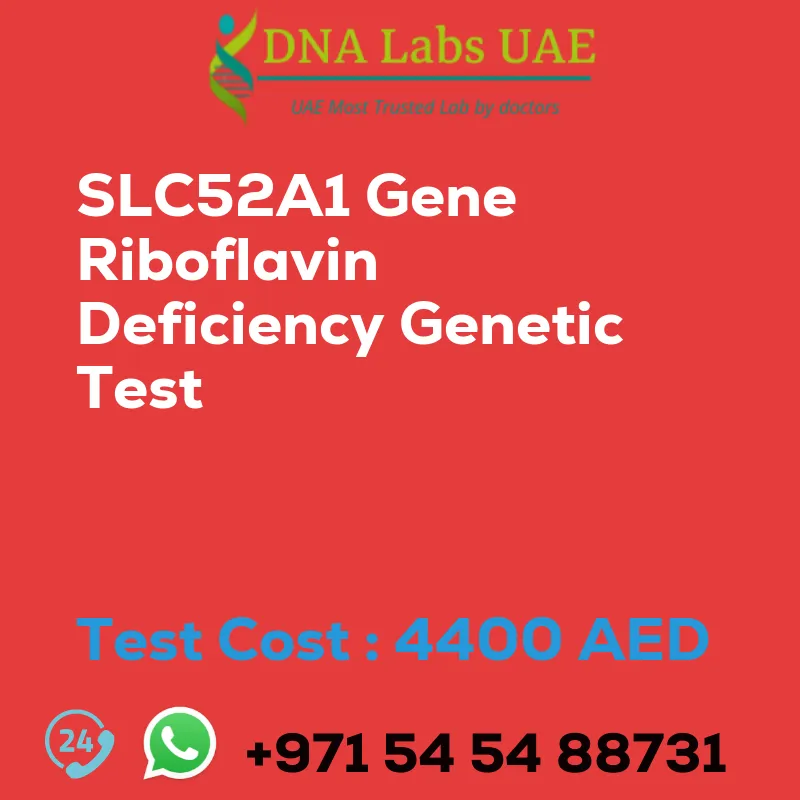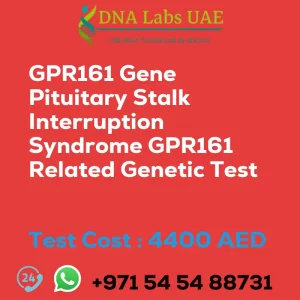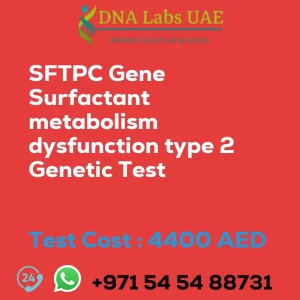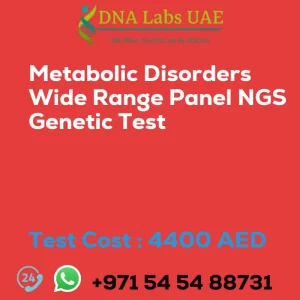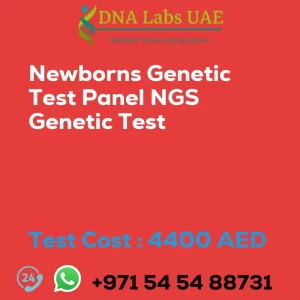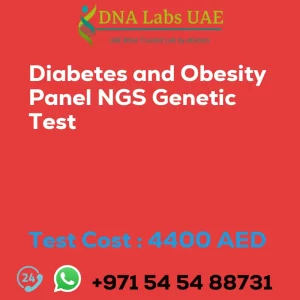SLC52A1 Gene Riboflavin Deficiency Genetic Test
Components
- Test Name: SLC52A1 Gene Riboflavin Deficiency Genetic Test
- Price: 4400.0 AED
- Sample Condition: Blood or Extracted DNA or One drop Blood on FTA Card
- Report Delivery: 3 to 4 Weeks
- Method: NGS Technology
- Test Type: Metabolic Disorders
- Doctor: General Physician
- Test Department: Genetics
Pre Test Information
Clinical History of Patient who is going for SLC52A1 Gene Riboflavin Deficiency NGS Genetic DNA Test. A Genetic Counselling session to draw a pedigree chart of family members affected with Riboflavin deficiency.
Test Details
The SLC52A1 gene is responsible for encoding a protein called riboflavin transporter 2 (RFVT2). Riboflavin, also known as vitamin B2, is an essential nutrient involved in various cellular processes, including energy production and metabolism.
Riboflavin deficiency can occur due to insufficient dietary intake, malabsorption, or increased demand for the vitamin. It can lead to a condition called riboflavin deficiency disorder, which can manifest as symptoms such as fatigue, weakness, mouth sores, and skin rash.
NGS (Next-Generation Sequencing) genetic testing refers to a high-throughput sequencing technology that allows for the rapid sequencing of large amounts of DNA or RNA. In the context of riboflavin deficiency, NGS genetic testing can be used to identify any variations or mutations in the SLC52A1 gene that may contribute to riboflavin deficiency disorder.
By analyzing the DNA sequence of the SLC52A1 gene, NGS genetic testing can help identify any genetic variants that may impair the function of the riboflavin transporter protein. This information can be useful in diagnosing riboflavin deficiency disorder and determining appropriate treatment strategies, such as riboflavin supplementation.
It is important to note that riboflavin deficiency can also occur due to factors other than genetic variations in the SLC52A1 gene. Therefore, NGS genetic testing may not always be necessary or sufficient for diagnosing riboflavin deficiency. A comprehensive evaluation of dietary intake, symptoms, and other laboratory tests may also be required for an accurate diagnosis.
| Test Name | SLC52A1 Gene Riboflavin deficiency Genetic Test |
|---|---|
| Components | |
| Price | 4400.0 AED |
| Sample Condition | Blood or Extracted DNA or One drop Blood on FTA Card |
| Report Delivery | 3 to 4 Weeks |
| Method | NGS Technology |
| Test type | Metabolic Disorders |
| Doctor | General Physician |
| Test Department: | Genetics |
| Pre Test Information | Clinical History of Patient who is going for SLC52A1 Gene Riboflavin deficiency NGS Genetic DNA Test A Genetic Counselling session to draw a pedigree chart of family members affected with Riboflavin deficiency |
| Test Details |
The SLC52A1 gene is responsible for encoding a protein called riboflavin transporter 2 (RFVT2). Riboflavin, also known as vitamin B2, is an essential nutrient involved in various cellular processes, including energy production and metabolism. Riboflavin deficiency can occur due to insufficient dietary intake, malabsorption, or increased demand for the vitamin. It can lead to a condition called riboflavin deficiency disorder, which can manifest as symptoms such as fatigue, weakness, mouth sores, and skin rash. NGS (Next-Generation Sequencing) genetic testing refers to a high-throughput sequencing technology that allows for the rapid sequencing of large amounts of DNA or RNA. In the context of riboflavin deficiency, NGS genetic testing can be used to identify any variations or mutations in the SLC52A1 gene that may contribute to riboflavin deficiency disorder. By analyzing the DNA sequence of the SLC52A1 gene, NGS genetic testing can help identify any genetic variants that may impair the function of the riboflavin transporter protein. This information can be useful in diagnosing riboflavin deficiency disorder and determining appropriate treatment strategies, such as riboflavin supplementation. It is important to note that riboflavin deficiency can also occur due to factors other than genetic variations in the SLC52A1 gene. Therefore, NGS genetic testing may not always be necessary or sufficient for diagnosing riboflavin deficiency. A comprehensive evaluation of dietary intake, symptoms, and other laboratory tests may also be required for an accurate diagnosis. |

